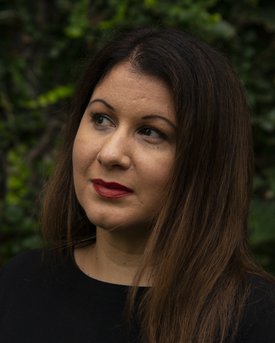
Ana Mendez-Oliver
DEPARTMENTS
- Languages, Literatures, and Linguistics
AFFILIATIONS
- Medieval and Renaissance Studies
- Spanish Language Literature and Culture
Assistant Professor, Spanish, Hispanic Literatures and Cultures
CONTACT
-
309 HB Crouse Hall
Email: amendezo@syr.eduOffice: 315.443.5378
Entries in the areas listed below (other than biography and books) are selections delimited to the last five years. Consult the faculty member’s biography, listed website(s) or CV for additional information.
